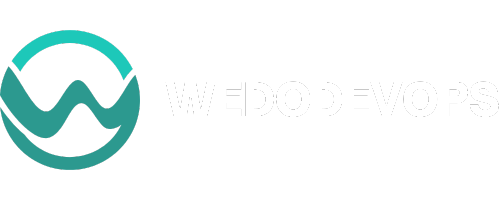Platform engineering is a critical aspect of the DevOps strategy that focuses on improving the developer experience and organizational efficiency. It involves designing and maintaining an internal development platform (IDP) for software delivery systems. As technology evolves, the demand for skilled platform engineers continues to rise, making this a lucrative career option for those with the right skills and experience.
In this article, we provide an overview of the role of a platform engineer, including their responsibilities, required skills, salary expectations, and related career paths. We begin by defining what a platform engineer’s job is and the key skills necessary for success in this role.
We then delve into the various responsibilities of a platform engineer, such as implementing and managing infrastructure, collaborating with other teams, ensuring scalability and security, and optimizing performance.
Finally, we discuss the impact of platform engineering on software development projects and explore potential career paths for those interested in pursuing this profession.

What Is A Platform Engineer?
The concept of platform engineering involves the development and maintenance of an internal developer platform (IDP) for software delivery systems. A platform engineer is responsible for designing and implementing infrastructure, monitoring performance, automating deployment processes, staying up-to-date with trends, and collaborating with cross-functional teams. Platform engineering is a DevOps strategy that aims to enhance the developer experience and organisation by enhancing developer productivity and efficiency.
A platform engineer plays a crucial role in software development by creating and supporting a platform that accelerates application delivery and business value production. Technical skills required for platform engineering include expertise in programming and scripting languages, understanding of networking concepts, proficiency in container technology, cloud computing skills, monitoring and observability skills, and knowledge of databases and database languages. This is a highly technical role that requires an analytical mindset, attention to detail, and the ability to solve complex problems.
Cloud computing is a vital component of platform engineering, and platform engineers must have a deep understanding of cloud infrastructure, deployment, and management. They must be familiar with cloud service providers such as AWS, Azure, and Google Cloud Platform. The platform engineer must also be able to automate testing, deployment, and configuration management processes to focus on more strategic tasks.
These technical skills are critical for a platform engineer to ensure the infrastructure is reliable, scalable, and capable of handling application needs over time.

Key Skills For Platform Engineers
Proficiency in programming and scripting languages, understanding of networking concepts, and expertise in debugging and troubleshooting are essential technical skills for successful platform engineers. A platform engineer must be proficient in at least one programming language such as Python, Java or C++. They must also have a working knowledge of networking concepts such as TCP/IP, DNS, and HTTP. Troubleshooting and debugging skills are also necessary to identify and resolve issues that arise in the infrastructure.
In addition to technical concepts, soft skills are equally important for a platform engineer. Collaboration, problem-solving, and project management skills are essential for a platform team of engineers to work effectively with cross-functional teams. They must be able to communicate complex technical issues to non-technical stakeholders and possess self-service capabilities to enable internal teams to utilize the platform with ease. Problem-solving skills are critical to identifying and resolving issues that arise in the infrastructure, while project management skills are necessary to manage timelines and mitigate risks.
Overall, a platform engineer must possess a combination of both strong technical skills and soft skills to perform their role effectively. Technical skills are necessary to design, implement and maintain the infrastructure, while soft skills are essential to collaborate with cross-functional teams and manage projects effectively. A successful platform engineer must be able to balance technical expertise with effective communication and project management skills.

Responsibilities Of A Platform Engineer
A skilled platform engineer shoulders a weighty responsibility to ensure the proper functioning and maintenance of the underlying infrastructure and applications while keeping up with emerging new technologies and industry best practices. The primary responsibility of a platform engineer is to design and implement the infrastructure required to support the organization’s software systems. They need to ensure that the infrastructure is reliable, scalable, and flexible enough to handle the application needs over time.
In addition to building the infrastructure, platform engineers also need to monitor and optimize its performance. They must ensure that the infrastructure is running smoothly and that any issues are identified and resolved quickly. They need to have strong troubleshooting skills to identify the root cause of issues and make appropriate changes to fix them.
Platform engineers also need to provide automation tools and services to support the continuous delivery and deployment of software applications. They need to maintain and update the infrastructure and applications to ensure that they continue to function effectively and efficiently over time.
The responsibilities of a platform engineer are crucial for the success of any software development organization. They are responsible for designing and implementing the infrastructure required to support software systems, monitoring and optimizing their performance and providing automation tools and services to support continuous delivery and deployment. Platform engineers need to have a broad range of technical skills, as well as excellent problem-solving and project management skills, to be successful in their role. They must keep up with emerging technologies and industry best practices to ensure that the organization remains competitive in the rapidly evolving technology landscape.

Implementing And Managing Infrastructure
Implementing and managing infrastructure is a critical aspect of application development and platform engineering that requires a broad range of technical skills and expertise. Platform engineers are responsible for designing and implementing infrastructure that is reliable, scalable, and capable of handling application needs over time. They work closely with the platform engineering team and the development team to understand infrastructure requirements and select appropriate hardware and software components.
In addition to selecting components, platform engineers configure networking and storage resources and create security policies to ensure that the infrastructure is secure and meets compliance requirements. They also automate testing, deployment, and configuration management processes to streamline infrastructure management and improve application performance.
With the rise of cloud platforms, platform engineers are expected to have expertise in AWS, Azure, or Google Cloud Platform and be able to deploy, monitor, and manage applications on these platforms.
Overall, implementing and managing infrastructure is a complex task that requires a deep understanding of technical concepts and the ability to work collaboratively with various teams. Platform engineers must be able to troubleshoot issues, identify the root cause of problems, and implement solutions quickly to ensure platform stability and reliability. By doing so, they play a critical role in enhancing developer experience and organizational efficiency.

Collaborating With Other Teams
Collaboration with cross-functional teams is crucial for platform engineering success, as it allows for effective communication and coordination to ensure the delivery of high-quality applications. Platform engineering teams work closely with software developers, quality assurance teams, project managers, and technical architects to ensure that the infrastructure is aligned with business goals and meets the needs of the end users. Collaboration with these teams helps platform engineers to understand the application’s requirements and design an infrastructure that can support the application’s performance and scalability.
The platform engineer role involves collaborating with other teams to enhance developer productivity, reduce time-to-market, and improve the application’s quality. Effective collaboration requires excellent communication skills, the ability to understand and articulate technical concepts, and the ability to work collaboratively with diverse teams.
Platform engineers must be adaptable and able to work in a fast-paced environment, as they often need to adjust their work to meet changing business requirements. They must also be able to work with different personalities and adjust their communication style to suit the needs of the team.
To ensure effective collaboration, platform engineering teams must establish clear communication channels and set expectations for each team member’s responsibilities. They should also schedule regular meetings to discuss project progress, identify potential issues, and brainstorm solutions.
Collaboration with cross-functional teams is essential for successful platform engineering, as it fosters a culture of innovation, teamwork, and continuous improvement. By working together, platform engineers and other teams can deliver high-quality applications that meet business needs and exceed end-user expectations.

Ensuring Scalability And Security
Ensuring scalability and security is a critical aspect of platform engineering, as it involves designing and implementing an infrastructure that can handle the application’s growth and protect it from potential threats. Platform engineer jobs require individuals to have the technical skills necessary to implement scalable platforms infrastructure that can handle the needs of existing applications and future growth. They must also have a deep understanding of security protocols and best practices to ensure that the platform and its applications are secure.
Platform engineers must ensure that the underlying infrastructure is reliable, scalable, and capable of handling application needs over time. They must select appropriate hardware and software components, configure networking and storage resources, and create security policies to protect the platform from potential threats. This involves working closely with the development team to understand the infrastructure requirements and collaborating with other teams to ensure that the platform is integrated into the larger technology ecosystem.
In addition to designing and implementing the platform’s infrastructure, platform engineers must also monitor infrastructure performance, debug and resolve application issues, and keep up with industry trends. They automate testing, deployment, and configuration management processes to streamline infrastructure management and focus on more strategic tasks.
By ensuring scalability and security, platform engineers enable developers and the application delivery process to accelerate, leading to faster business value production and growth.

Performance Optimization
Optimizing the performance of a platform requires constant monitoring and analysis of infrastructure and application performance metrics to identify areas for improvement. This is where the role of a platform engineer comes into play. Performance optimization is a key responsibility of platform engineers as it directly impacts the user experience and developer productivity.
To optimize platform performance, platform engineers use a variety of techniques and tools. These include implementing continuous integration and deployment pipelines, using emerging technologies such as containerization and serverless computing, and monitoring and analyzing performance metrics. By using these techniques, platform engineers can detect and resolve performance issues before they impact the user experience.
Continuous monitoring of the platform’s performance is essential for detecting and addressing issues. Platform engineers use monitoring tools to track key performance indicators (KPIs) such as response time, latency, and throughput. They identify bottlenecks and areas of poor performance and make necessary changes to improve performance.
By continuously optimizing performance, platform engineers ensure that the platform can handle the demands of its users and support the growth of the organization.
Impact On Software Development Projects
Effective performance optimization techniques and tools implemented by platform engineers greatly impact the success and efficiency of software development projects. Platform engineers play a significant role in ensuring that enterprise software delivery is streamlined, fast, and secure. They design and maintain reusable services and tools that the development team can use to create high-quality, efficient, and reliable software products.
The impact of platform engineers on software development projects is multifaceted. They help identify and resolve performance bottlenecks, optimize application code, and improve the overall system architecture. They also ensure that the software development process is automated, streamlined, and standardized, leading to increased productivity and faster time-to-market.
With the help of platform engineers, software development teams can focus on building new features and functionalities, rather than worrying about infrastructure management or performance issues. Platform engineers play a critical role in ensuring the success of software development projects. They are responsible for designing and maintaining the infrastructure, tools, and services that allow developers to build high-quality software products.
By implementing effective performance optimization techniques, platform and software engineers can improve the user experience, increase productivity, and ultimately, contribute to the success of the software development project.
Career Paths For Platform Engineers
Career paths for platform engineers can vary depending on individual interests and skills, but one thing is certain: staying up-to-date with emerging technologies and industry trends is crucial in this rapidly evolving field.
Platform engineers can choose to specialize in a technical area, such as cloud computing, containerization, or database management. They can also pursue leadership roles in product development, project management, or business strategy.
The potential career paths for platform engineers are endless, and there is ample opportunity for growth and advancement in this field.
To succeed in a career as a platform engineer, technical skills are essential. Expertise in programming and scripting languages, container technology, cloud computing, and monitoring and observability skills are all necessary for effective platform development and maintenance.
In addition to technical skills, project management skills are also important for platform engineers. They must be able to plan, organize, and prioritize tasks effectively, communicate with stakeholders, and mitigate risks to ensure business value is delivered.
As platform engineering continues to evolve, so do career opportunities in this field. Some of the top roles to explore in platform engineering include platform engineering associate, product manager platform, principal engineer developer platform systems, senior platform engineer infrastructure, product manager data platform, and data platform engineer.
Regardless of the career path chosen, platform engineers must be committed to ongoing learning and development to stay ahead of the curve and deliver value to their organizations.
Conclusion
In conclusion, the role of a platform engineer is critical to the success of any organization’s software delivery systems. Platform engineers are responsible for designing and maintaining an internal developer platform that enables developers to be more productive and efficient. They must possess a wide range of technical skills, including expertise in programming languages, infrastructure management, security, and performance optimization.
Platform engineers collaborate with other teams to ensure that the platform meets the organization’s scalability and security needs. They must also be able to optimize the platform’s performance to ensure that software development projects are completed in a timely and efficient manner.
The demand for skilled platform engineers continues to grow, and there are many career paths available in this field. As technology evolves, the role of a platform engineer will become even more important. Organizations that invest in building and maintaining robust internal developer platforms will be better equipped to meet the demands of an increasingly competitive marketplace.
In conclusion, the platform engineering profession offers many exciting opportunities for those with the right skills and aptitudes, and it is an excellent career choice for individuals who are passionate about technology and innovation. Through their expertise, platform engineers can help organizations achieve their strategic goals and stay ahead of the curve in an ever-changing technological landscape.
Frequently Asked Questions
What Education And Training Are Required To Become A Platform Engineer?
A bachelor’s degree in computer engineering, science, software engineering or a related field is usually required for a platform engineer. Additional training in cloud computing, networking, and programming languages such as Python, Java, or C++ is also necessary.
How Do Platform Engineers Handle Data Privacy And Security Concerns?
Platform engineers handle data privacy and security concerns by implementing security protocols and best practices into operating systems, ensuring infrastructure is reliable and scalable, selecting appropriate hardware and software components, creating security policies, and staying up-to-date with emerging technologies and cybersecurity measures.
What Are Some Common Challenges Faced By Platform Engineers?
Common challenges faced by platform engineers include ensuring infrastructure reliability and scalability, staying up-to-date with emerging technologies and trends, troubleshooting network issues, coordinating with cross-functional teams, and maintaining cybersecurity measures to prevent data breaches.
How Do Platform Engineers Stay Up-To-Date With Emerging Technologies And Industry Trends?
Platform engineers stay up-to-date with emerging technologies and industry trends by attending conferences, networking with peers, participating in online forums, reading industry publications, and experimenting with new tools and techniques. They also collaborate with cross-functional teams to gain insights and share knowledge.
What Are Some Strategies For Effective Communication And Collaboration With Cross-Functional Teams In A Platform Engineering Role?
Effective communication and collaboration with cross-functional teams are essential for platform engineers. According to a survey, 86% of employees and executives attribute workplace failures to a lack of collaboration and communication.








